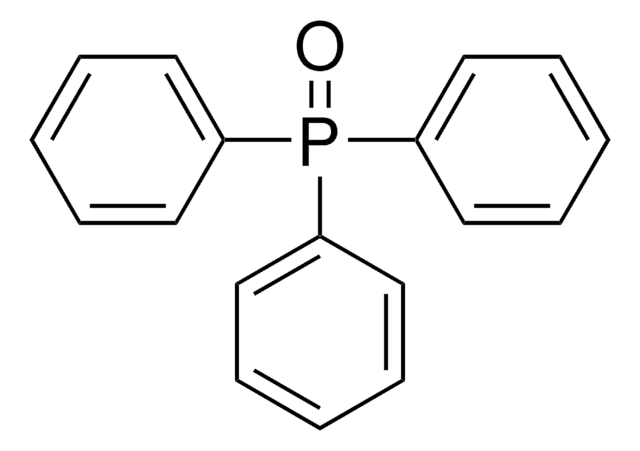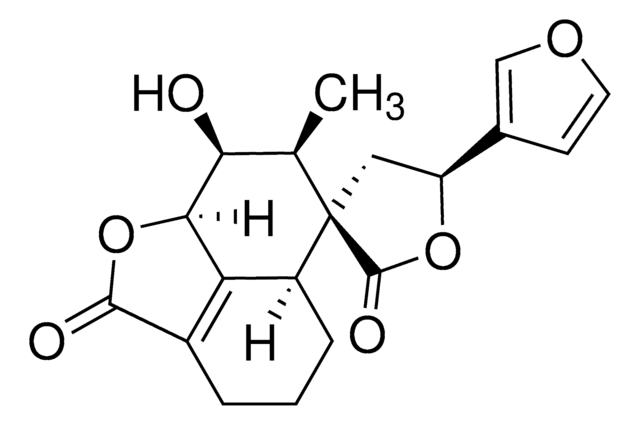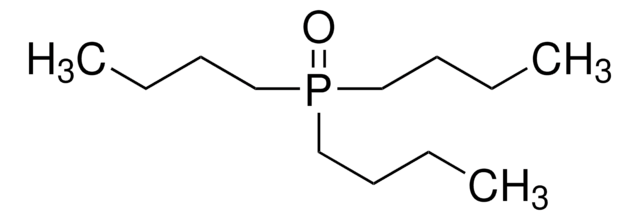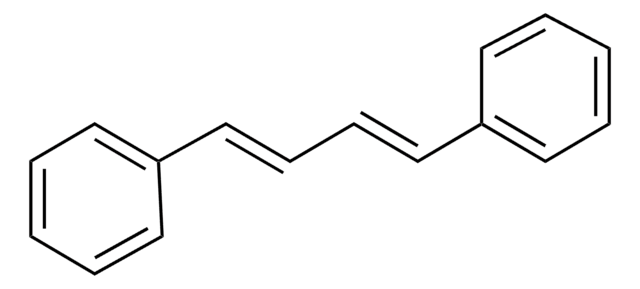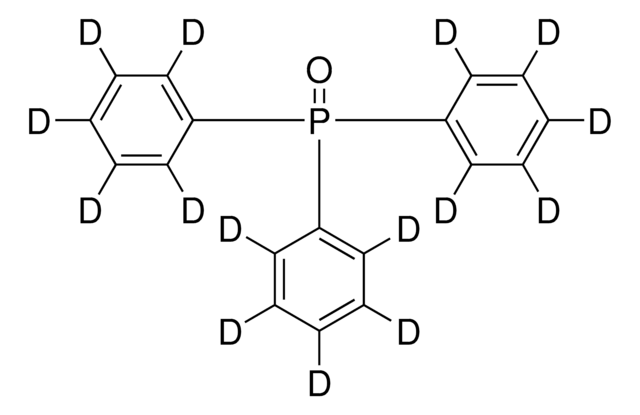T84603
Triphenylphosphine oxide
98%
Synonym(s):
Ph3PO, TPPO, Triphenyl phosphorus oxide, Triphenylphosphine monoxide
About This Item
Recommended Products
Assay
98%
reaction suitability
reagent type: ligand
reaction type: Coupling Reactions
reagent type: ligand
reaction type: Epoxidations
reagent type: ligand
reaction type: Michael Reaction
mp
150-157 °C (lit.)
functional group
phosphine oxide
SMILES string
O=P(c1ccccc1)(c2ccccc2)c3ccccc3
InChI
1S/C18H15OP/c19-20(16-10-4-1-5-11-16,17-12-6-2-7-13-17)18-14-8-3-9-15-18/h1-15H
InChI key
FIQMHBFVRAXMOP-UHFFFAOYSA-N
Looking for similar products? Visit Product Comparison Guide
Application
- As a catalyst in Appel-type chlorination reaction of acyclic primary and secondary alcohols.
- As a catalyst in stereoselective poly and dibromination of α,β-unsaturated esters and β,γ-unsaturated α-ketoester compounds.
- As a promotor in the diastereoselective synthesis of α-ribofuranosides through ribofuranosylation of alcohols with ribofuranosyl iodides.
Signal Word
Warning
Hazard Statements
Precautionary Statements
Hazard Classifications
Acute Tox. 4 Oral - Aquatic Chronic 3
Storage Class Code
11 - Combustible Solids
WGK
WGK 2
Flash Point(F)
356.0 °F
Flash Point(C)
180 °C
Personal Protective Equipment
Certificates of Analysis (COA)
Search for Certificates of Analysis (COA) by entering the products Lot/Batch Number. Lot and Batch Numbers can be found on a product’s label following the words ‘Lot’ or ‘Batch’.
Already Own This Product?
Find documentation for the products that you have recently purchased in the Document Library.
Customers Also Viewed
Our team of scientists has experience in all areas of research including Life Science, Material Science, Chemical Synthesis, Chromatography, Analytical and many others.
Contact Technical Service